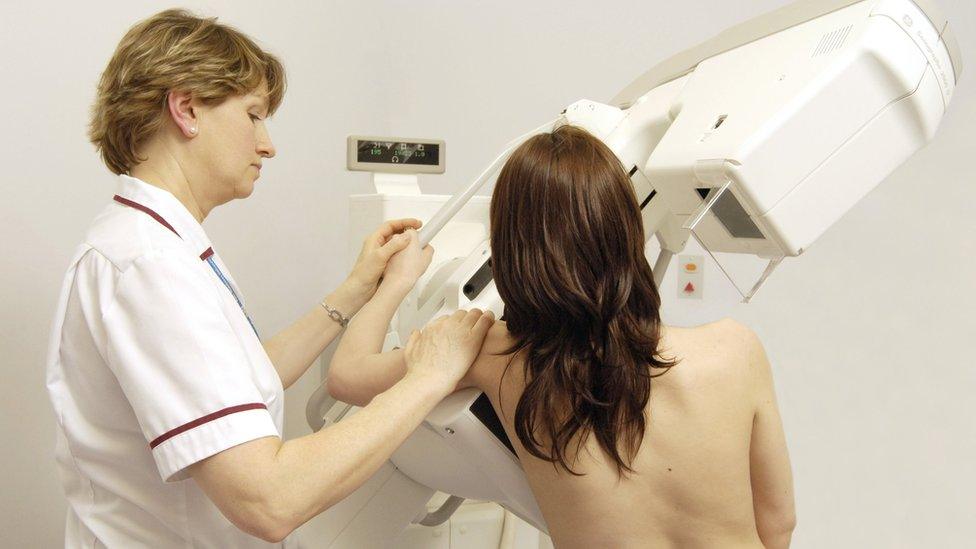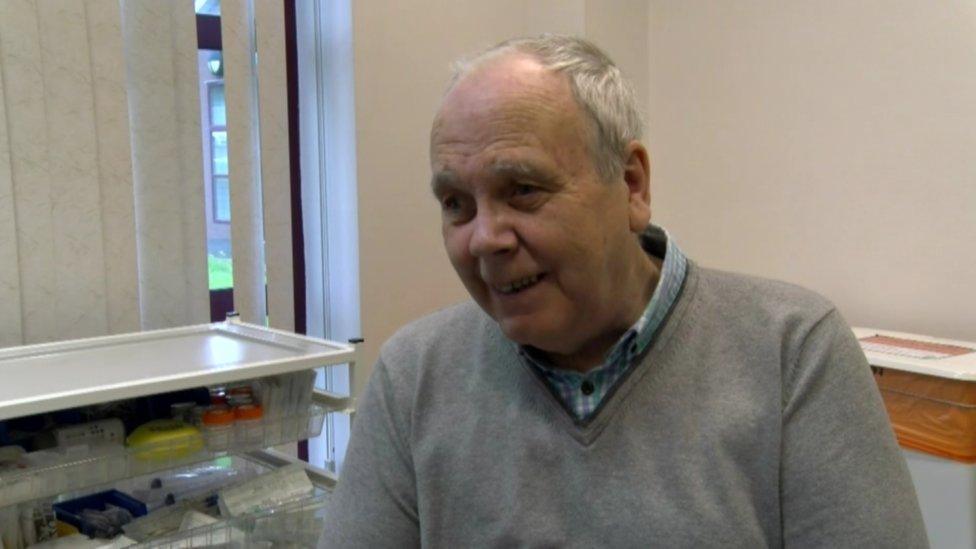'Breakthrough' breast cancer drugs get NHS approval
- Published
- comments

Two new "breakthrough" drugs to treat breast cancer have been given the green light for use on the NHS.
The National Institute for Health and Care Excellence (NICE) approved palbociclib and ribociclib after negotiating prices for the treatments.
Research shows the drugs slow down advanced cancer for at least 10 months and can delay the need for chemotherapy.
Around 8,000 people in England will now have access to the medications.
There are about 45,000 new diagnoses of breast cancer in the country each year.
Palbociclib had earlier been rejected by NICE because of its high cost.
One cycle of palbociclib - or 21 capsules - costs £2,950 for a pack of 21. For 63 tablets of ribociclib, the price is the same.
The latest draft guidance from NICE said that women with oestrogen receptor positive breast cancer that is diagnosed after it has begun to spread will be eligible for palbociclib - also known as Ibrance.
If they have gone through the menopause, they will be eligible for ribociclib - also known as Kisqali.
Breast cancer drug palbociclib could give women more time to control disease, scientist tells Today
The two medications are the first of a new type of drug shown to slow down the progression of cancer by inhibiting two proteins - CDK 4 and 6.
They only need to be taken once a day, alongside an aromatase inhibitor - which blocks the production of the hormone oestrogen and can fuel some breast cancers.
'Life-changing drug'
Vikki Orvice, who was prescribed palbociclib for two years as part of a trial, told BBC Radio 4's Today programme that the NICE approval was "brilliant news".
"It's a life-changing drug for thousands of women and in years to come as well," the sports writer from St Albans, Hertfordshire, said.
"You get slight fatigue from it, but it was manageable and I was on the highest dose possible. No one looking at me would have known I was ill... you have a quality of life with so few side effects."
Craig Eagle, head of oncology at Pfizer UK, which manufactured palbociclib, told Today the tablet "helps control and slow the cancer for up to two years, bringing that extra time for patients in the prime of their life".
He said it was correct that the company had first offered the drug at a price that was rejected by NICE, but they had later come to a "confidential agreement around the price".
Nicholas Turner, professor of molecular oncology at the Institute of Cancer Research in London, and consultant medical oncologist at the Royal Marsden, said the new drugs were "one of the most important breakthroughs for women with advanced breast cancer in the last two decades".
Prof Turner, who led the clinical trials for the drugs, said: "Palbociclib and ribociclib have made a huge difference to women's lives - slowing down tumour growth for nearly a year, and delaying the need for chemotherapy with all its potentially debilitating side-effects.
"These drugs have allowed women to live a normal life for longer."
- Published9 November 2017

- Published29 September 2017

- Published17 October 2017

- Published22 October 2017
